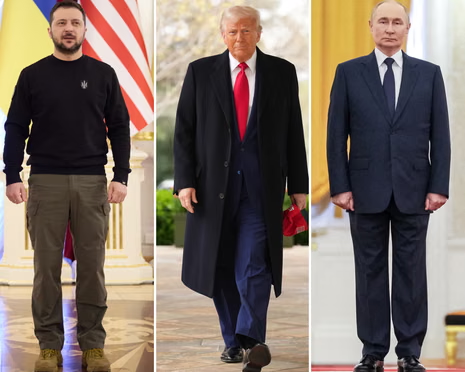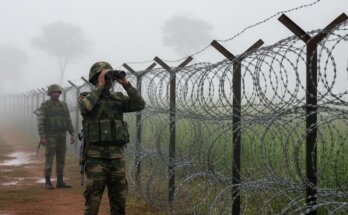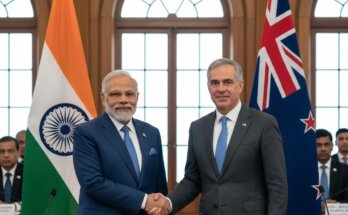Just days before high-stakes peace talks in Washington, Ukrainian President Volodymyr Zelenskiy has accused Russia of carrying out “cynical and brutal strikes” on civilian areas in Kharkiv and Zaporizhzhia.
The attacks, which killed at least 10 people including a one-year-old child, have cast a dark shadow over the upcoming negotiations with Donald Trump and European leaders. Zelenskiy vowed Ukraine would not bow to pressure or accept “land-for-peace” compromises.
Details of the Strikes
-
Kharkiv: Russian drones struck residential areas, destroying homes and injuring dozens.
-
Zaporizhzhia: A missile attack hit a shopping district, leaving several dead and many wounded.
-
Ukrainian emergency services confirmed 10 fatalities, including children, and more than 40 injuries.
Zelenskiy described the timing as deliberate:
“Russia is trying to intimidate Ukraine and weaken our position at the negotiating table. But our resolve is stronger than ever.”
The Timing: Before Peace Talks
The strikes come as Zelenskiy prepares to meet:
-
Donald Trump, who has positioned himself as a potential peace broker.
-
European leaders including Germany’s chancellor and France’s president.
Talks will focus on:
-
The possibility of a ceasefire framework
-
Territorial disputes, including Crimea and Donbas
-
Ukraine’s path toward NATO and EU integration
Russia’s Stance
The Kremlin has denied deliberately targeting civilians, claiming the strikes were aimed at “military infrastructure.”
However, independent observers note that civilian areas have repeatedly been hit during Russia’s campaign, fueling accusations of war crimes.
Moscow has also signaled it expects Ukraine to make territorial concessions, a demand Kyiv firmly rejects.
Global Reactions
-
Germany: Foreign Minister Annalena Baerbock urged “increased pressure on Russia” before talks.
-
U.S.: The White House condemned the strikes as “an outrageous escalation.”
-
NATO: Reaffirmed support for Ukraine’s sovereignty and territorial integrity.
Markets reacted nervously, with oil and gold prices ticking upward amid renewed geopolitical uncertainty.
Zelenskiy’s Position
Zelenskiy has made clear:
-
Ukraine will not surrender territory.
-
Peace must respect Ukraine’s sovereignty and international law.
-
Military and financial aid from the West is crucial to maintain leverage.
He also stressed the importance of showing unity:
“If the free world weakens now, Russia will only grow bolder. We must stand together.”
The Road Ahead
The Washington talks will be critical in shaping the future of the war:
-
A credible ceasefire proposal could offer hope for de-escalation.
-
Failure could prolong the conflict, leading to more destruction and instability.
Conclusion
Russia’s latest strikes underscore the brutality and complexity of the war in Ukraine. As peace talks approach, Zelenskiy faces the dual challenge of defending Ukraine militarily while navigating diplomatic pressures.
The coming days may define whether the conflict edges toward resolution — or deeper escalation.
FAQs
Q1: What did Russia target in the latest strikes?
Residential and shopping areas in Kharkiv and Zaporizhzhia, according to Ukrainian officials.
Q2: Why are the strikes significant now?
They occurred just before major peace talks in Washington, seen as an attempt to pressure Ukraine.
Q3: Who will Zelenskiy meet in Washington?
Donald Trump, Germany’s chancellor, France’s president, and other European leaders.
Q4: Will Ukraine accept territorial concessions?
Zelenskiy has firmly rejected any deal that gives Russia Ukrainian land.




